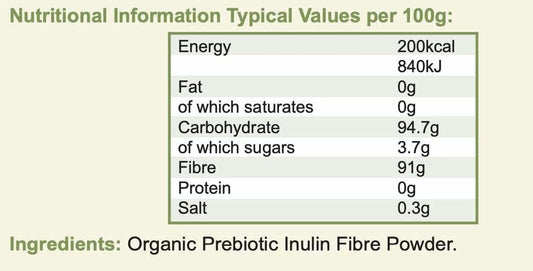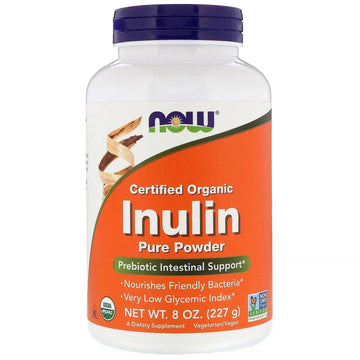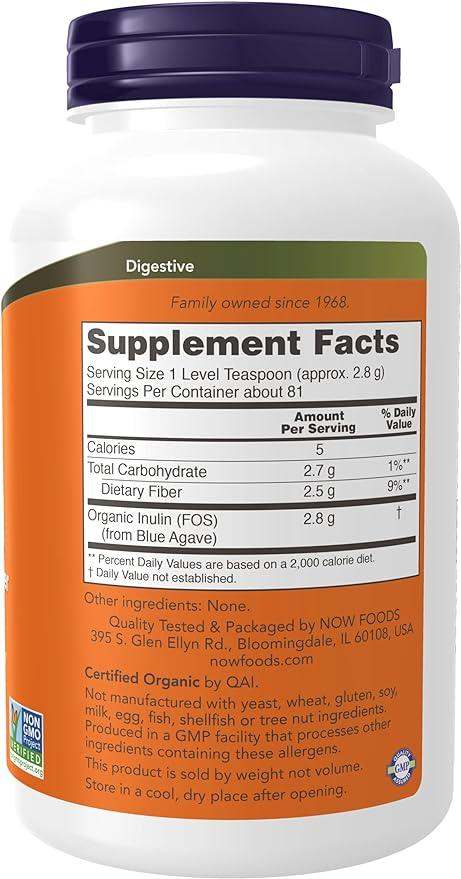Inulin is a type of soluble dietary fibre found in many plants, including chicory, artichokes, and dandelion roots. It is a prebiotic, which means it serves as food for the beneficial bacteria in the gut. Inulin is used in a variety of supplements and functional foods due to its ability to support gut health, improve digestive function, and offer a variety of other metabolic benefits.
Inulin works by fermenting in the colon, promoting the growth of friendly bacteria such as Bifidobacteria, which help improve digestion and support a healthy microbiome.
The Benefits of Inulin
Inulin offers a range of health benefits, particularly for digestive health and gut microbiome balance. Some of its key benefits include:
-
Improved gut health – promotes the growth of beneficial gut bacteria and contributes to a balanced microbiome
-
Enhanced digestion – supports regular bowel movements and helps reduce symptoms of constipation
-
Blood sugar regulation – helps modulate blood sugar levels by slowing digestion and absorption of carbohydrates
-
Weight management – may help increase feelings of fullness, reducing overall calorie intake
-
Improved mineral absorption – aids in the absorption of minerals such as calcium and magnesium, supporting bone health
Inulin also serves as a prebiotic fibre, which is essential for nourishing and maintaining a healthy gut ecosystem, enhancing overall digestive function.
Best Products in the Inulin Collection
Welzo’s Inulin Collection includes the most trusted, high-quality inulin products designed to support digestive health and wellbeing. Popular product types include:
-
Inulin powder – a versatile form that can be easily added to smoothies, shakes, or meals for daily prebiotic support
-
Inulin capsules – convenient for those seeking targeted digestive and gut health support
-
Combination formulas – blends that include inulin with other beneficial prebiotics or probiotics for enhanced microbiome support
These products are ideal for individuals looking to improve digestive health, boost fibre intake, or support a balanced and thriving gut microbiome. They are often taken alongside supplements found in Welzo’s Digestive Enzymes, Gut Health, or Probiotics collections for a more comprehensive approach to digestive wellness.
Why Shop the Inulin Collection at Welzo?
At Welzo, we carefully curate our collections to include only the best and most effective products in the field of health and wellness. The Inulin Collection is no exception, featuring high-quality supplements from trusted brands that focus on scientific research, ingredient purity, and efficacy.
Our products come from well-established brands with expertise in digestive health, prebiotics, and gut microbiome science. These products are developed by companies known for their commitment to quality and reliability in the health and wellness industry.
Whether you're looking to enhance your gut microbiome, promote better digestion, or regulate blood sugar levels, Welzo’s Inulin Collection provides safe, effective, and convenient solutions to help you maintain a balanced and healthy digestive system. These products are often used alongside supplements from our Custom Probiotics, and Dulcolax collections to provide a full spectrum of digestive support.














 Rated Excellent by 26,523+ Reviews
Rated Excellent by 26,523+ Reviews